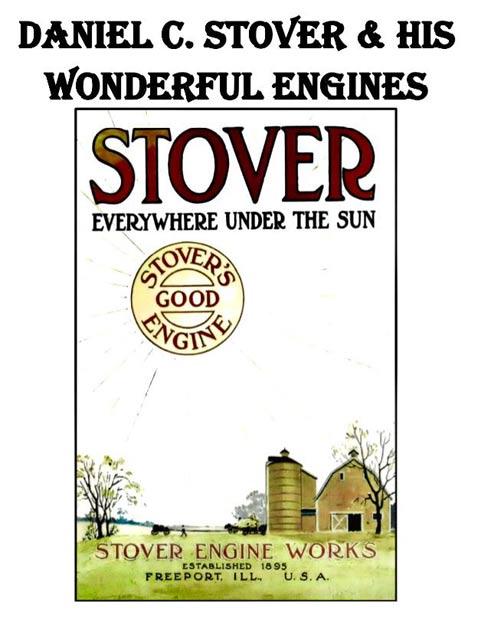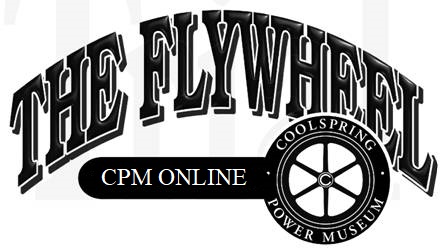
January 2022
A Glimpse of Stover 2022
By Paul Harvey
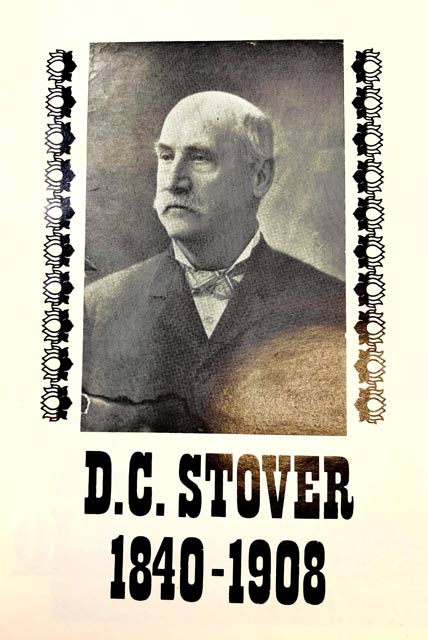
January is rapidly slipping by, but what a month!
It started with some mild weather and then, WHAM! A 12-inch
snowfall followed by subzero nights. Hmmm, Iím not liking this.
Now more snow! But wait! I noticed the days are quite a bit
longer and that means spring is just around the corner. Now that sounds
very promising and is a good reason to now endure the cold and white
stuff.
Pleasant thoughts now come to mind. Hmm, Spring. Gas
engines and engine shows. Yep, the CPM June Expo is not that far away,
so better plan now. Remember, 2022 is the year that we will feature
Stover Engines and all related equipment. So, polish up that old Stover
sitting in the corner and run it for us in June. Letís see how many we
can get! It will be a great show! All Stover-related equipment is
encouraged, and of course anything our exhibitors bring is always
welcome. Thatís what makes it so much fun. Come and set up what you
want, then sit back and enjoy. What a better time to renew old
friendships and make new ones. With all your help, we will have a great
show that can be pleasantly recalled as the snow falls next year!
The 2022 Bores and Strokes booklet has already
been written and will soon go to the printer. Norm Shade and I are the
co-authors, with Norm writing the history of Dan Stover and his factory
and with me detailing the chronology of his engines. I think you will
enjoy it, and now we will take a peek at my part. Nope, I wonít show
you too much! Youíll just have to buy a copy at the museumís Gifts and
Souvenirs Shop and take it home to read over your morning coffee.
Dan Stover was an inventive genius! He had almost 80
patents to his name, just everything the farmer of the day needed to
make his life easier. He built a huge factory in Freeport, Illinois, to
manufacture all his products and employed over 1,100 men in 1919.
Remarkable! Norm will tell you more about that history in the booklet.
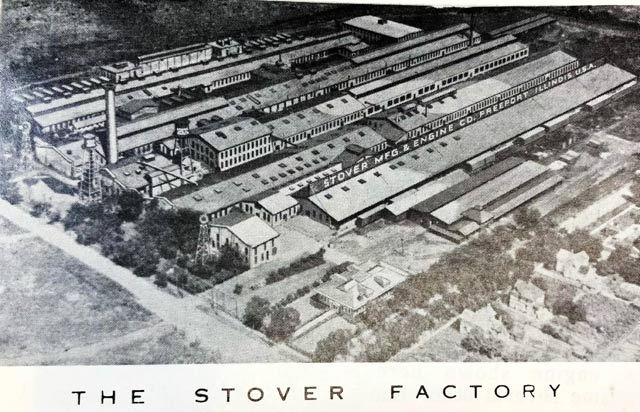
Stover entered the gas engine market very early and was
truly one of its pioneers in design. His 1904 patent defined an engine
that was to become the ďbasic farm engineĒ for all future makers. His
enthusiasm created over 277,000 engines, third only to International
Harvester and Fairbanks Morse. Here we see some of his workers posing
around a fine, 1904 tank-cooled model. Interesting attire!
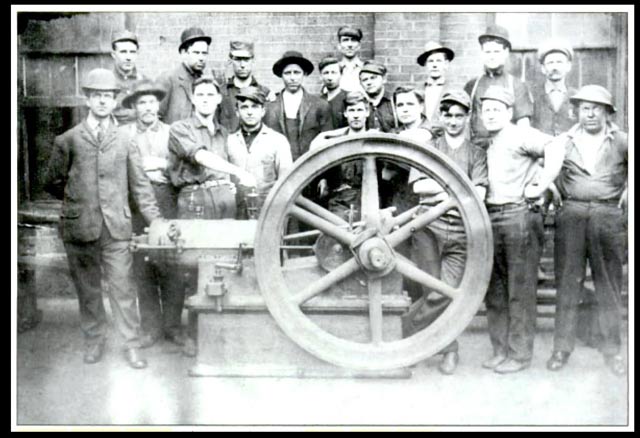
Stover produced so much for the farmer. Barbed wire and
wire making machines. Grain mills of all kinds. Windmills. He even
made bicycles and buggies. You just gotta love that guy for what he
did!
Mop, anyone? Yep, Stover made then by the thousands for
the farmerís wife so she could keep the home clean and tidy. Convenient
then but it looks like hard work today.
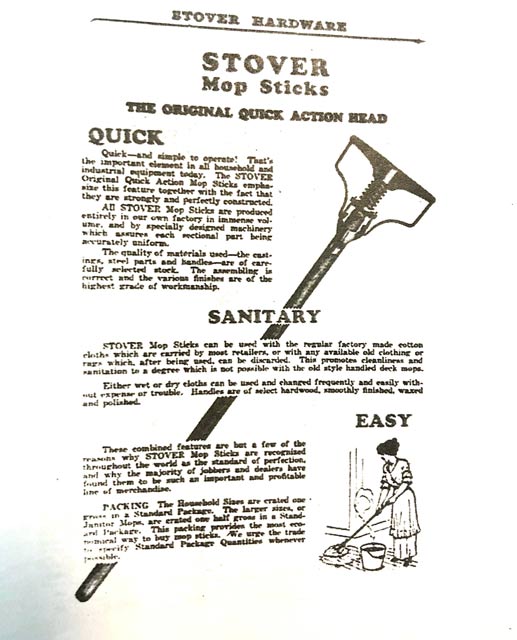
Here are some other products to help the farmer: a
Stover engine running a buzz saw, and another running a log saw. They
look crude now but they did their work very faithfully and eliminated
all the hours that one or two men spent doing the same work by hand.
They were popular items and sold well.
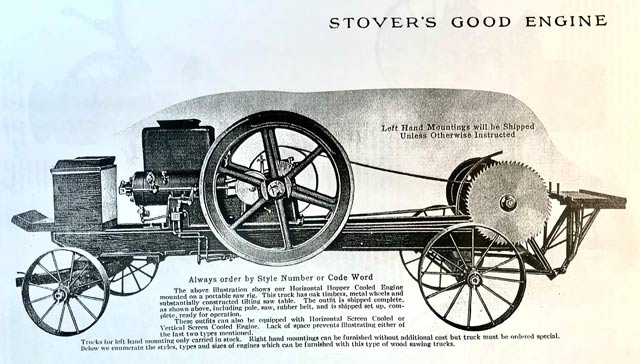
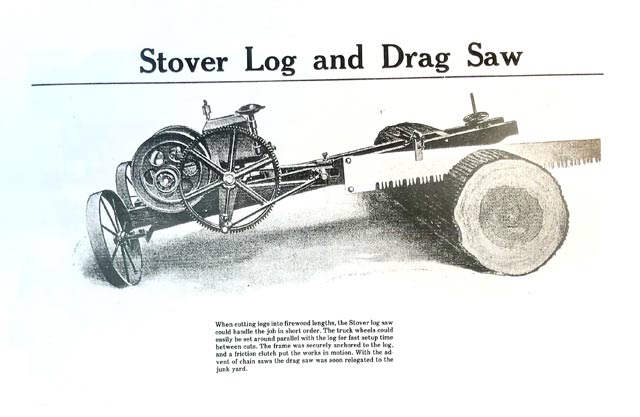
Grain mills anyone??? Yep, Dan made them! The top
photo is an early one with horse sweep. A plank was attached to the
bracket and old Dobbin would walk in circles all day to grind the grain.
He probably got a bit of it for lunch. The other mills are belt
drive to be powered by a Stover (hopefully) engine. They were very
successful and many were sold.
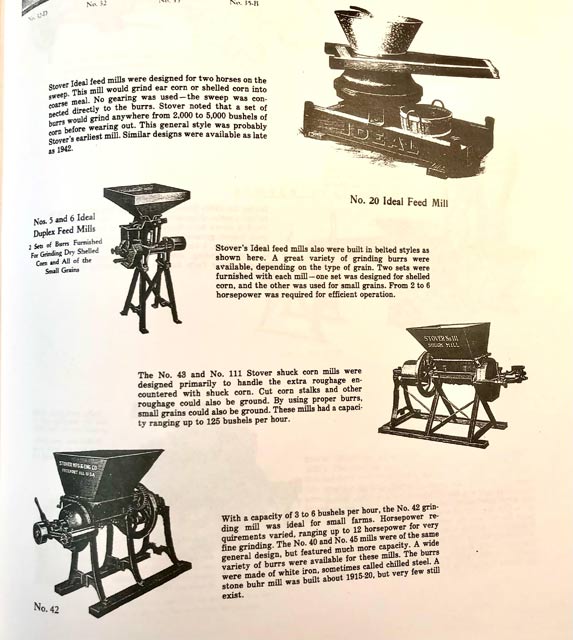
My favorite Stover? I really like this tank-cooled
model. I just enjoy its smooth lines and fine appearance. The
mechanism is quite simple and it uses overhead valves. Great machine in
1904!
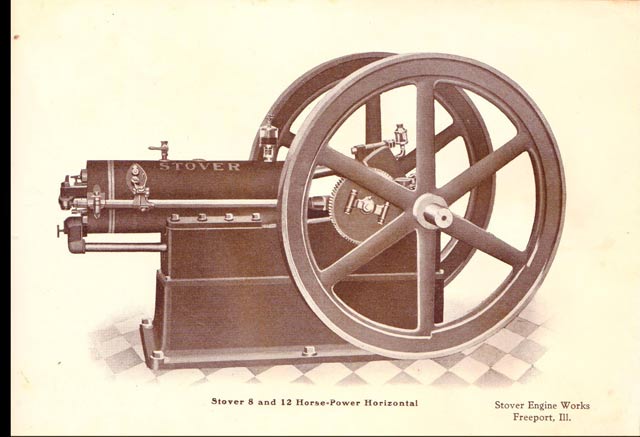
Now we take a peek at the ďbasic farm engineĒ that I
referred to earlier. A picture of simplicity! This little machine was
entirely self-contained and light enough to be easily moved. Note the
water hopper cooling, the magneto ignition, the self-contained fuel
tank, and portability. Thousands were sold.
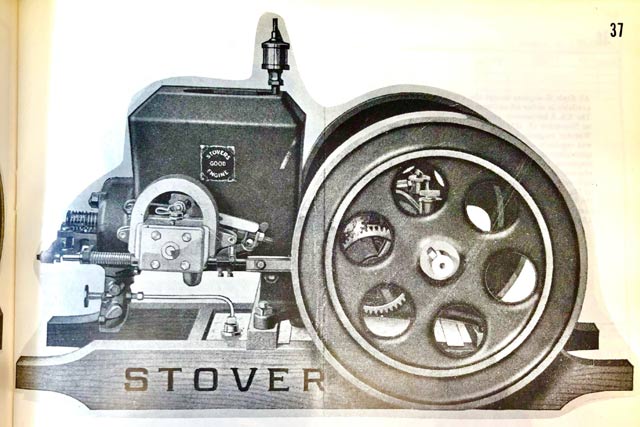
Engine development was progressing very rapidly during the first half of the twentieth century with a myriad of new designs and makers. All fierce competition of Stover. But he kept abreast of the tide with his own designs and modernization. Some of the ventures failed, but many others proved successful.
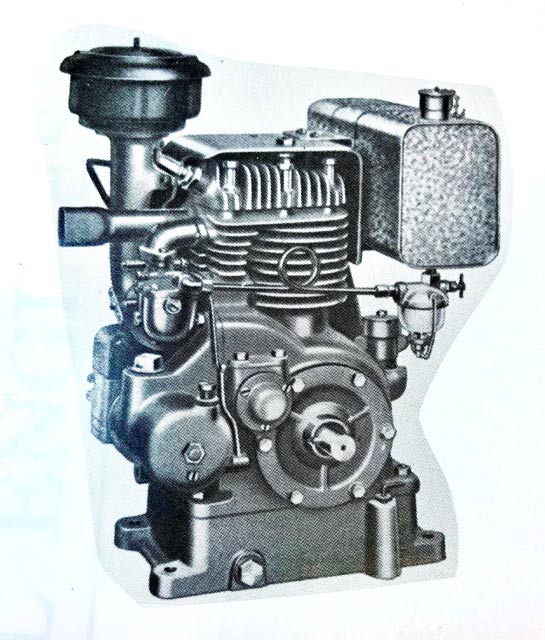
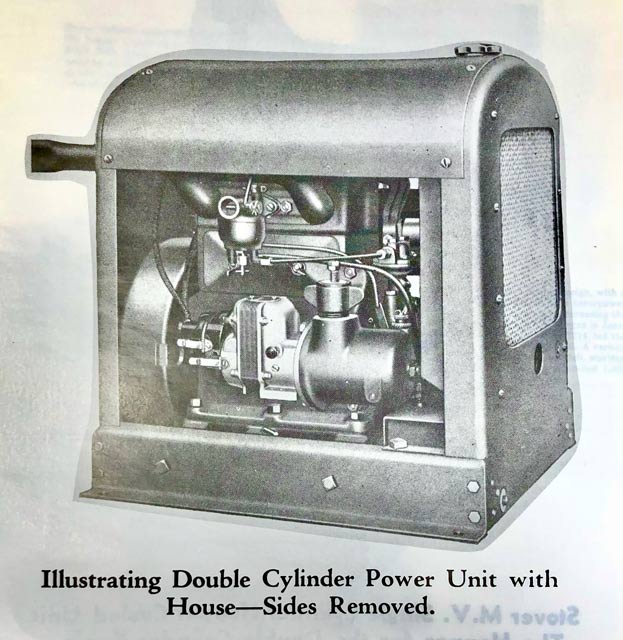
One could hardly guess that these were Stover engines,
but indeed they were. Small, portable, and electric starting on some.
Yep, this is what the farmer now wanted, and Stover made them.
Sadly, the end finally came. The last Stover offering
was this vertical diesel, built from 5 hp to 15 hp. After investing
much into the new engines, they were not well received and all engine
production ceased in 1942. The company continued for a few more years,
then closed its doors forever. The long Stover legacy had ended.
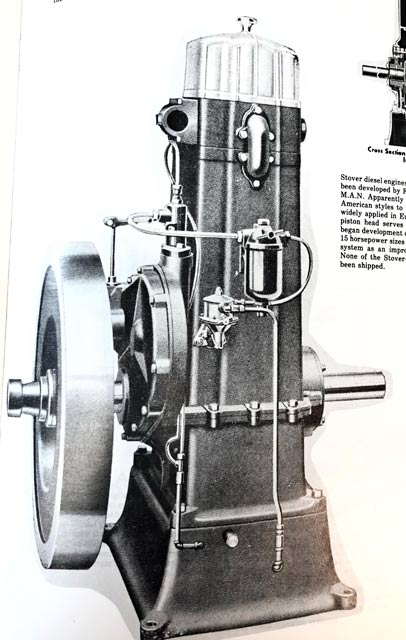
This has been a short glimpse into the 2022 Stover
Bores & Strokes. It is hoped that the reader has enjoyed and will
attend CPMís June Expo. Get out all your Stover stuff, polish it up a
bit, and we will have a great time in Coolspring. See you then.
